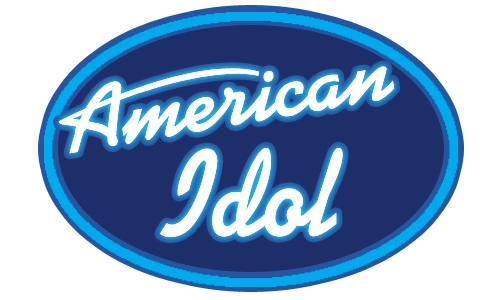In a motion to dismiss, the producers say the show features enough African-Americans, is protected by the First Amendment and isn’t a “rigged contest.”
In July, 10 former contestants on American Idol sued over alleged discrimination on the long-running reality singing competition show. The complaint filed in New York federal court came in at a whopping 429 pages and dealt with such diverse topics as civil rights laws, unconscionable release forms, criminal background checks and a supposedly rigged TV contest. But at its heart, the lawsuit aimed to show that by disqualifying many African-American contestants through the years, the popular TV show was oppressive.
On Monday, the defendants in the case including FremantleMedia, Fox Broadcasting, former executive producer Nigel Lythgoe and various corporate sponsors at long last responded in depth to the charges. In a motion to dismiss (read in full here), they raise various arguments why a judge should toss the case before it ever gets heard before a jury.
But before going into those legal arguments, the defendants’ lawyers take an opportunity to present a quick statistical case why alleged racism on American Idol can’t, to use their words, “be reconciled with reality.”
“By their own allegations, from the show’s inception, approximately one-third of the ‘Golden Ticket’ winners (who advance beyond the open auditions and travel to Hollywood), have been African American,” says the motion to dismiss, obtained by The Hollywood Reporter. “Plaintiffs also allege that approximately one-third of American Idol’s semi-finalists have been African American. During the show’s twelve seasons, four of the winners have been African-American. African-Americans thus have participated in key stages of the contest at more than double their proportion of the country’s population.”
Of course, as we originally pointed out when the lawsuit was filed, the plaintiffs aren’t so concerned with successful outcomes, but rather the disqualifications, or unsuccessful outcomes.
The ex-contestants including Jaered Andrews, Corey Clark and Chris Golightly contend that the producers unfairly exploited criminal “rap sheets” with thin evidence about their crimes and to their own advantage, precluded them from having a fair shot at being victorious on American Idol.
No matter, say the defendants. The clock has already ticked to midnight on any possible claims.
“The ten plaintiffs in this lawsuit are former American Idol contestants who were eliminated from the show, either by public vote or through disqualification, as long as ten years ago,” they say. “Long after the statutes of limitations have expired for all but one plaintiff, they now ask the Court to revisit their eliminations.”
The producers have other potential arrows to shoot down the lawsuit. Not surprisingly, for instance, they are planting the free speech flag.
“As plaintiffs’ complaint acknowledges, the show dramatizes the lives of the contestants, telling their back stories, personal struggles, and ambitions,” says the motion. “As an expressive work, American Idol is entitled to the First Amendment’s full protection.”
If the suing ex-contestants insist upon terming Idol scripted “dramatic fiction,” the defendants see that allegation to their own advantage. A ruling last year that dismissed a racial discrimination lawsuit against The Bachelor is cited as preventing an attempt at injunctive relief over who gets to participate on a reality show. This Idol lawsuit arguably goes further. A judge is told, “In fact, plaintiffs go so far as to seek injunctive relief to prevent defendants from making certain decisions about how to portray contestants, which contestants to disqualify, and how to depict any disqualifications.”
In the motion to dismiss, Idol producers also take their shot at whacking a rescission claim over the allegedly unconscionable agreements that contestants sign as a condition for appearing on the show. The defendants say that contestants can’t allege any “pre-existing duty” to spoil them with rewards for singing talent. According to the motion, “As a matter of law, defendants’ promise to provide plaintiffs with a chance to be considered for the show, airfare, meals, and lodging constitutes sufficient consideration for plaintiffs’ publicity and intellectual property rights.”
Further, the former Idol contestants are said to have been aware of producers’ decision-making discretion.
“Here, there was no misrepresentation,” say the defendants. “The contracts provide that defendants have discretion not only to disqualify contestants at any time, but to disqualify them for the specific reasons that plaintiffs were disqualified.”
The motion to dismiss is full of goodies, understandable since the defendants are being forced to respond to allegations first detailed over hundreds of pages. We won’t go into everything, but among our favorites is the response to claims that American Idol has somehow run afoul of the laws that came in the wake of TV quiz-show scandals of the 1950s and made it illegal for broadcasters to rig a contest of intellectual skill with the intent to deceive the viewing public.
What brainpower does it take to sing?
Here it is argued that “American Idol is a contest of singing skill — not one of ‘intellectual knowledge, intellectual skill, or chance.'”
[Billboard]


